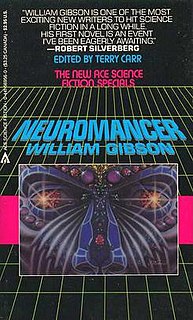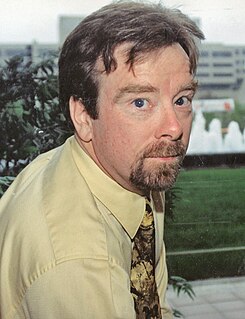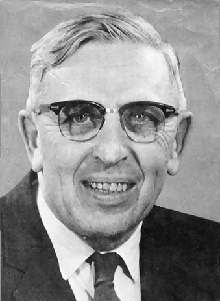Related Research Articles
Cyberpunk is a subgenre of science fiction in a dystopian futuristic setting that tends to focus on a "combination of lowlife and high tech" featuring advanced technological and scientific achievements, such as artificial intelligence and cybernetics, juxtaposed with a degree of breakdown or radical change in the social order. Much of cyberpunk is rooted in the New Wave science fiction movement of the 1960s and 1970s, when writers like Philip K. Dick, Roger Zelazny, John Brunner, J. G. Ballard, Philip José Farmer and Harlan Ellison examined the impact of drug culture, technology, and the sexual revolution while avoiding the utopian tendencies of earlier science fiction.

Neuromancer is a 1984 science fiction novel by American-Canadian writer William Gibson. It is one of the best-known works in the cyberpunk genre and the only novel to win the Nebula Award, the Philip K. Dick Award, and the Hugo Award. It was Gibson's debut novel and the beginning of the Sprawl trilogy. Set in the future, the novel follows Henry Case, a washed-up computer hacker who is hired for one last job, which brings him up against a powerful artificial intelligence.

Poul William Anderson was an American science fiction author who began his career in the 1940s and continued to write into the 21st century. Anderson authored several works of fantasy, historical novels, and short stories. His awards include seven Hugo Awards and three Nebula Awards.

Alfred Bester was an American science fiction author, TV and radio scriptwriter, magazine editor and scripter for comic strips and comic books. He is best remembered for his science fiction, including The Demolished Man, winner of the inaugural Hugo Award in 1953.

Sexual themes are frequently used in science fiction or related genres. Such elements may include depictions of realistic sexual interactions in a science fictional setting, a protagonist with an alternative sexuality, a sexual encounter between a human and a fictional extraterrestrial, or exploration of the varieties of sexual experience that deviate from the conventional.

John Shirley is an American writer, primarily of fantasy, science fiction, dark street fiction, and songwriting. He has also written one historical novel, a western about Wyatt Earp, Wyatt in Wichita, and one non-fiction book, Gurdjieff: An Introduction to His Life and Ideas. Shirley has written novels, short stories, TV scripts and screenplays—including The Crow—and has published over 40 books and 8 short-story collections. As a musician, Shirley has fronted his own bands and written lyrics for Blue Öyster Cult and others. He wrote the lyrics for five songs in the hit 2020 Blue Oyster Cult album "The Symbol Remains" including the singles "That Was Me" and "Box in My Head". An extensive compilation of songs by Shirley, Broken Mirror Glass was released by Black October Records. His most recent album is Spaceship Landing in a Cemetery, a collaboration with prog rocker Jerry King, aided by a host of musicians. He has written about spirituality for Parabola Magazine and Quest Magazine. Shirley's science-fiction novel, blending "cli-fi" and cyberpunk, Stormland will be released from Blackstone books in April 2020.
Sarah Zettel is an American author, primarily of science fiction. Her first short story was published in Analog Science Fiction and Fact in 1991. Zettel's novels have won multiple awards, including the Philip K. Dick Award and the Locus Award for Best First Novel, and positive reviews from critics. Her first novel Reclamation was published in 1996 and her second novel Fool's War in 1997. She has written romance novels and mysteries under the pseudonym Darcie Wilde, and the novel Bitter Angels as C. L. Anderson.

Mona Lisa Overdrive is a science fiction novel by American-Canadian writer William Gibson, published in 1988. It is the final novel of the cyberpunk Sprawl trilogy, following Neuromancer and Count Zero, taking place eight years after the events of the latter. The novel was nominated for the Nebula Award for Best Novel, the Hugo Award for Best Novel, and the Locus Award for Best Science Fiction Novel in 1989.

Hackers is an anthology of science fiction short stories edited by Jack Dann and Gardner Dozois. It was first published in 1996. It contains stories by science fiction and cyberpunk writers of the late 1980s and early 1990s about hackers.

John Kessel is an American author of science fiction and fantasy. He is a prolific short story writer, and the author of four solo novels, Good News From Outer Space (1989), Corrupting Dr. Nice (1997), The Moon and the Other (2017), and Pride and Prometheus (2018), and one novel, Freedom Beach (1985) in collaboration with his friend James Patrick Kelly. Kessel is married to author Therese Anne Fowler.

Bruce Bethke is an American author best known for his 1983 short story Cyberpunk which led to the widespread use of the term, including for the cyberpunk subgenre of science fiction. His novel, Headcrash, won the Philip K. Dick Award in 1995 for SF original paperback published in the US.
"The Sandkings" is a 1995 Canadian-American television film based on the 1979 novella Sandkings by George R. R. Martin, and the first episode of the revived 1960s science-fiction television series The Outer Limits. It premiered on 26 March 1995 on Showtime and features three generations of the Bridges acting family: Beau, his father Lloyd, and son Dylan. Kim Coates and Helen Shaver also star.

Half Past Human is a fixup science fiction novel by American author T. J. Bass, published in 1971. Two short stories were combined and fleshed out to form this novel: "Half Past Human", first published in Galaxy Science Fiction in December 1969, and "G.I.T.A.R.", first published in If in November and December 1970. The novel belongs to the Hive series, which also includes The Godwhale.

The Wall of the Sky, the Wall of the Eye is a 1996 collection of seven short stories by Jonathan Lethem. In 2002 a collection of the same name appeared in the United Kingdom that also contained seven stories, but two stories from the earlier collection—"Vanilla Dunk" and "Forever, Said the Duck"—were replaced by "Access Fantasy" and "How We Got Into Town And Out Again". All of the stories, as with much of Lethem's early work, have definite science fiction elements despite their widely varying content and some thinly veiled commentary on modern society.

James Patrick Kelly is an American science fiction author who has won both the Hugo Award and the Nebula Award.

When Gravity Fails is a cyberpunk science fiction novel by American writer George Alec Effinger, published in 1986. It was nominated for the Nebula Award for Best Novel in 1987 and the Hugo Award for Best Novel in 1988. The title is taken from "Just Like Tom Thumb's Blues", a song by Bob Dylan: "When your gravity fails and negativity don't pull you through".

"The Bone Flute" is a science fiction short story by American writer Lisa Tuttle, first published in the May 1981 issue of The Magazine of Fantasy & Science Fiction. The story won the 1982 Nebula Award for Best Short Story, a prize that Tuttle refused, becoming the first author to do so.

Clifford Donald Simak was an American science fiction writer. He won three Hugo Awards and one Nebula Award. The Science Fiction Writers of America made him its third SFWA Grand Master, and the Horror Writers Association made him one of three inaugural winners of the Bram Stoker Award for Lifetime Achievement.
"Of Mist, and Grass, and Sand" is a science fiction short story by Vonda N. McIntyre. First published in Analog Science Fiction and Fact in October 1973, it was anthologized multiple times, and also formed the first chapter of McIntyre's 1978 novel Dreamsnake. Set after a nuclear holocaust, "Of Mist, and Grass, and Sand" tells of Snake, a healer who uses the venom of three genetically engineered snakes to heal, and follows her effort to heal a nomad boy of a tumor. The story won the Nebula Award for Best Novelette in 1974. It was also nominated for the Hugo Award in the same category, and for the Locus Award for Best Short Fiction. Scholar Anne Hudson Jones called it a powerful story, and stated that its themes were "mythic and universal".